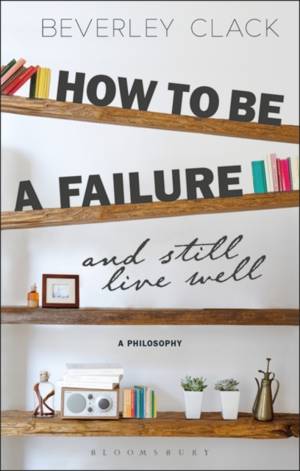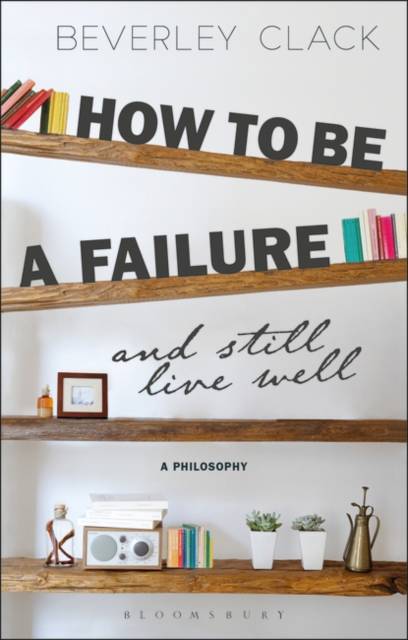
Je cadeautjes zeker op tijd in huis hebben voor de feestdagen? Kom langs in onze winkels en vind het perfecte geschenk!
- Afhalen na 1 uur in een winkel met voorraad
- Gratis thuislevering in België vanaf € 30
- Ruim aanbod met 7 miljoen producten
Je cadeautjes zeker op tijd in huis hebben voor de feestdagen? Kom langs in onze winkels en vind het perfecte geschenk!
- Afhalen na 1 uur in een winkel met voorraad
- Gratis thuislevering in België vanaf € 30
- Ruim aanbod met 7 miljoen producten
Zoeken
€ 169,95
+ 339 punten
Omschrijving
In consumer economies, success has increasingly been defined in terms of material attainment and the achievement of status. This model of 'the good life' and its formulas for success ignore the haunting possibility that one may not succeed and as a result be deemed 'a failure'. How to be a Failure and Still Live Wellexplores that often neglected theme of failure, not just as the opposite of achievement, but also, and more importantly, how it has been conflated with loss: that which haunts all transient, mortal human experience.
Understanding loss as a form of failure affects our ability to cope with the everyday losses that permeate existence as a result of the natural processes of ageing, death, and decay. Engaging with loss and thinking about what it inevitability means for our lives and commitments, allows different values to emerge than those connected to success as attainment. Relationships, spontaneity, and generosity are explored as qualities that arise from taking seriously our vulnerability and that form the basis for richer accounts of what it might mean to 'live well'.
Understanding loss as a form of failure affects our ability to cope with the everyday losses that permeate existence as a result of the natural processes of ageing, death, and decay. Engaging with loss and thinking about what it inevitability means for our lives and commitments, allows different values to emerge than those connected to success as attainment. Relationships, spontaneity, and generosity are explored as qualities that arise from taking seriously our vulnerability and that form the basis for richer accounts of what it might mean to 'live well'.
Specificaties
Betrokkenen
- Auteur(s):
- Uitgeverij:
Inhoud
- Aantal bladzijden:
- 264
- Taal:
- Engels
Eigenschappen
- Productcode (EAN):
- 9781350030688
- Verschijningsdatum:
- 23/01/2020
- Uitvoering:
- Hardcover
- Formaat:
- Genaaid
- Afmetingen:
- 127 mm x 203 mm
- Gewicht:
- 385 g

Alleen bij Standaard Boekhandel
+ 339 punten op je klantenkaart van Standaard Boekhandel
Beoordelingen
We publiceren alleen reviews die voldoen aan de voorwaarden voor reviews. Bekijk onze voorwaarden voor reviews.









